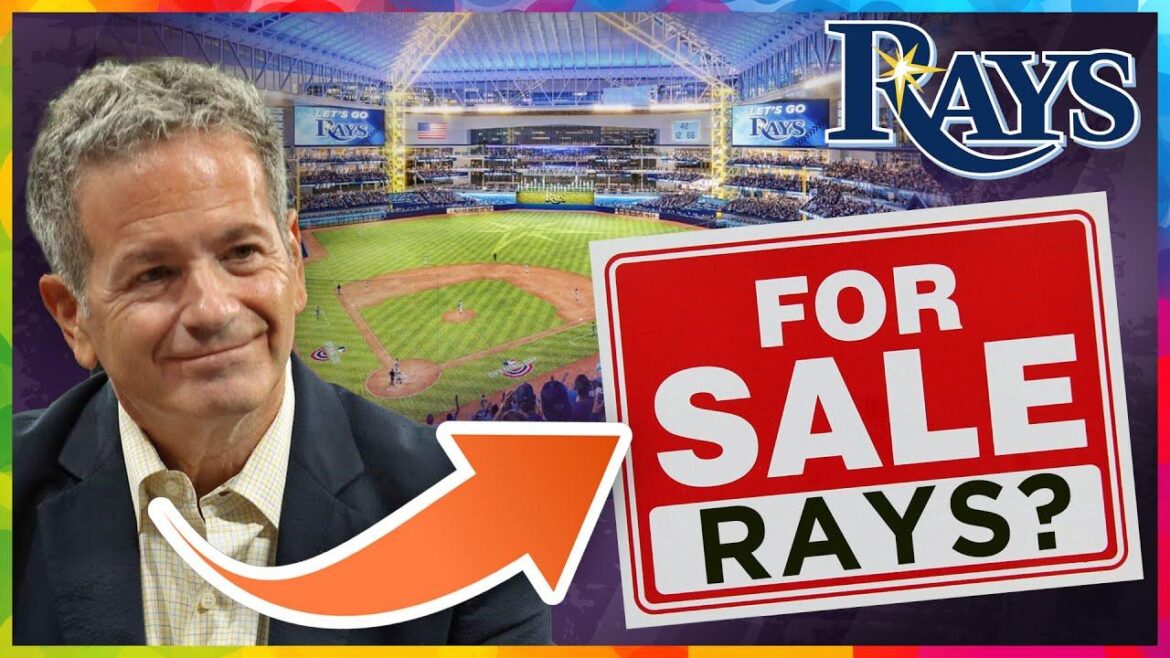In a significant development for Major League Baseball and the Tampa Bay sports landscape, the Tampa Bay Rays have announced that they are engaged in discussions regarding a potential sale of the franchise. This news emerges in the midst of ongoing uncertainty surrounding the team’s stadium situation, as officials continue to navigate challenges related to their current home at Tropicana Field. With the franchise’s future hanging in the balance, fans and stakeholders alike are left to wonder what a change in ownership could mean for the team’s prospects, its commitment to the Tampa Bay area, and the longstanding debate over a new stadium venue. As the conversations unfold, the Rays find themselves at a crucial crossroads that could reshape the future of baseball in the region.
Tampa Bay Rays Explore Sale Options as Future Stadium Plans Remain Uncertain
In a significant development for baseball fans in the Tampa Bay area, the Tampa Bay Rays are reportedly exploring options for a potential sale as uncertainties surrounding their future stadium plans deepen. The team’s management has stated they are engaging with potential buyers, a move that reflects the mounting pressures amidst ongoing discussions about securing a new venue. The Rays have long sought to replace Tropicana Field, which has faced criticism for its location and aging infrastructure, prompting the need for a more modern facility that could enhance the fan experience and drive revenue.
As the Rays navigate these discussions, several key factors are influencing their decision-making process:
- Location Challenges: The current stadium’s accessibility and fan turnout have been persistent issues.
- Market Interest: Initial reports suggest there is a healthy interest from several potential buyers, indicating the appeal of an MLB franchise in a growing market.
- Future Infrastructure: The need for a new stadium remains paramount, with ongoing debates about potential sites continuing to complicate the team’s prospects.
| Factor | Impact on Sale |
|---|---|
| Stadium Viability | Reduces attractiveness without immediate improvement plans. |
| Local Support | Strong community backing could boost sale potential. |
| Future Projections | Positive outlook can enhance buyer confidence. |
Impact of Potential Sale on Community and Regional Development Initiatives
The potential sale of the Tampa Bay Rays has the community on edge, particularly regarding the future of regional development initiatives that have been closely tied to the team’s presence. Local businesses and neighborhood organizations are concerned that a change in ownership could disrupt ongoing projects aimed at revitalizing the area surrounding the stadium. The Rays’ current management has been instrumental in collaborating with local leaders to secure funding for community-driven initiatives, but uncertainty surrounding the sale may stall these efforts. Economic growth, job creation, and public investment in infrastructure hang in the balance, leading residents to question the long-term vision for their community.
Moreover, discussions around a potential sale often evoke concerns about the impact on community engagement and social programs that the team currently supports. The Rays have established beneficial partnerships with local charity organizations, but an ownership change could signal a shift in priorities. Below is a summary of community initiatives that may be affected by the sale:
| Initiative | Description | Current Status |
|---|---|---|
| Youth Baseball Clinics | Programs aimed at promoting sports among local youth. | Active |
| Local Sponsorships | Support for small businesses and community events. | Under Review |
| Fundraising Events | Annual events to benefit local charities. | Confirmed for this year |
As local leaders try to navigate the uncertainties presented by the sale, there remains a strong desire to ensure that community development remains a top priority. The Rays’ influence extends beyond the baseball diamond, playing a vital role in shaping the economic and social landscape of the Tampa Bay area. Stakeholders are eager for transparency during this transition, hoping to safeguard vital community programs and projects that have garnered substantial support over the years.
- Advertisement -
Strategic Recommendations for Stakeholders Amid Ongoing Negotiations
As negotiations regarding the potential sale of the Tampa Bay Rays progress, various stakeholders must consider strategic approaches to navigate the complexities of this evolving situation. Local government officials should prioritize transparent communication with the public, emphasizing the importance of community involvement in decisions that potentially impact the future of baseball in the region. Engaging with fans and addressing concerns about the stadium’s future will be crucial in maintaining public support. Additionally, business leaders in the Tampa Bay area should assess opportunities to collaborate in support of a new stadium proposal, as enhanced infrastructure can bolster economic growth and retain local talent.
Within this landscape, investors and potential buyers need to evaluate the long-term implications of the team’s presence in Tampa Bay. Conducting thorough market research on fan engagement, team loyalty, and regional demographics will provide insights that help craft tailored strategies for building a successful franchise. Furthermore, establishing partnerships with local entities will not only facilitate smoother negotiations but also solidify the team’s identity within the community. To aid stakeholders in their decision-making process, the following table outlines key areas of focus:
| Stakeholder Group | Key Considerations |
|---|---|
| Local Government | Engagement with citizens, support for infrastructure development |
| Business Leaders | Partnership opportunities for economic growth, community sponsorships |
| Investors | Market research, community identity integration |
Wrapping Up
In conclusion, the Tampa Bay Rays find themselves at a pivotal crossroads as discussions of a potential sale unfold amidst ongoing uncertainty regarding their stadium situation. The franchise’s future remains in limbo, with the looming questions of financial sustainability and community engagement at the forefront of the conversation. As negotiations progress, both fans and stakeholders will be watching closely, eager for clarity on the team’s direction and its long-term impact on the Tampa Bay sports landscape. The coming weeks will undoubtedly be crucial for the Rays’ trajectory, highlighting the intricate interplay between ownership, public support, and the quest for a new home.


